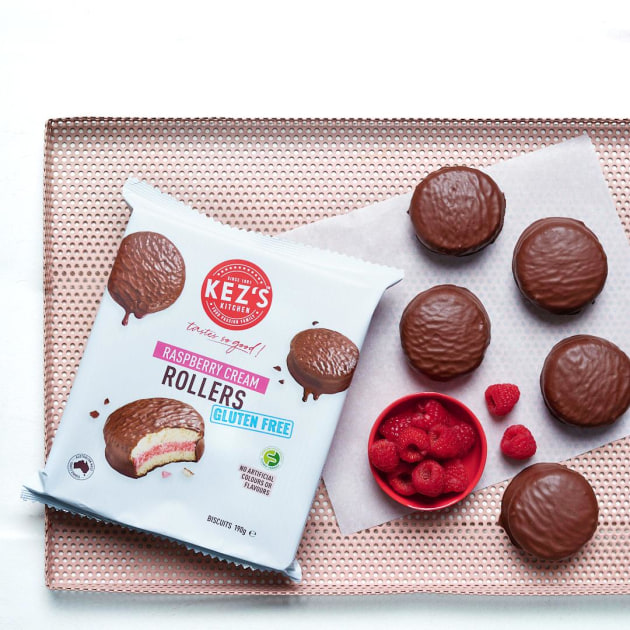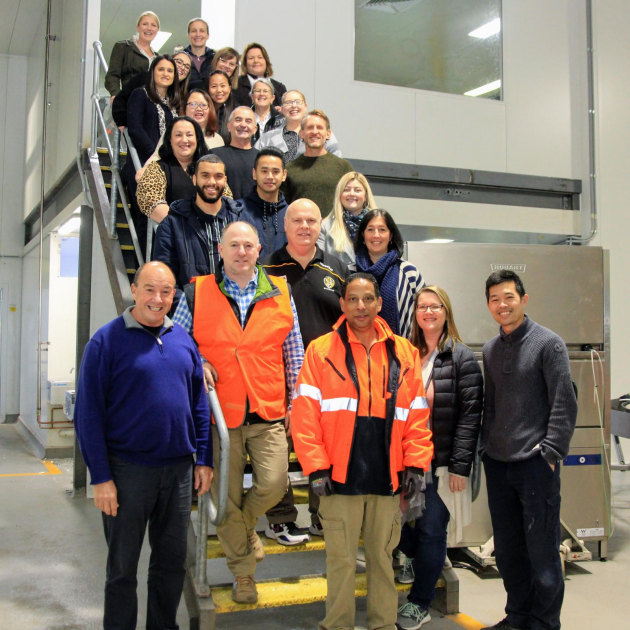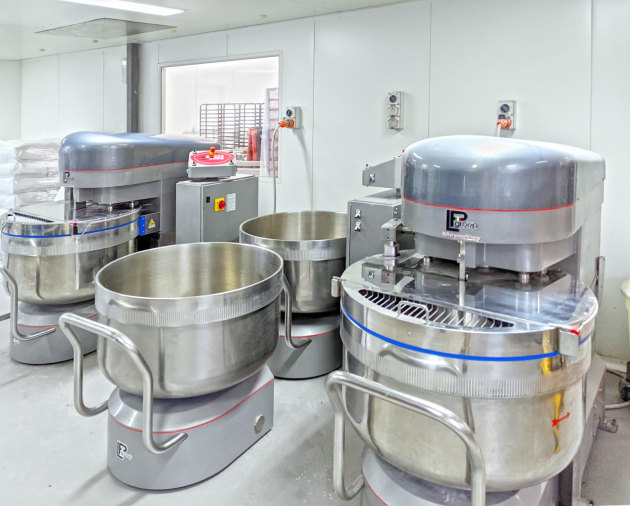When Kez’s Kitchen outgrew its facility in Melbourne, the homestyle bakery business approached Process Partners to help decide whether they needed to refit or relocate. Kim Berry toured the bakery to find out more.
One of Australia’s most well-known biscuit and baked goods brands, Kez’s Kitchen, began in the early 1990s with a choc chip biscuit made in the family kitchen.
Today, it produces almost 30 types of biscuits, bars, and brownies in traditional and gluten free varieties.
As with many family-owned businesses, accommodating growth was a piecemeal process, with additional production lines and equipment added where space allowed.

In 2019, pre-Covid, the company recognised the need to make significant changes to its facility to accommodate growth and find operational efficiencies.
Owner and managing director Michael Carp explains, “Changes were needed to increase our capacity and flexibility. At the time we had one large bakery that operated as gluten rich for three weeks and then gluten free on a five-week cycled.
“We wanted to redesign our layout to allow for increased output in both gluten rich and gluten free as well as improve flexibility so that we didn’t always have to predict five weeks ahead. That would allow us not to sit on so much stock and be able to adapt quickly if customer demand changed.”
The company engaged Process Partners, one of Australia’s largest independent specialist food engineering groups.
Craig Gilbert is a senior packaging engineer for the group and led the Kez’s Kitchen project team.
“When Michael approached us, and in fact when any new customer comes to us, we see a key part of our role as bringing solutions to the table they might not have even considered.
“It’s not uncommon for customers to think they have to relocate, when in fact it can be a redesign of existing premises that can deliver the benefits, they are looking for,” Gilbert says.
The project at Kez’s Kitchen was just that. The company was growing with wider distribution networks, new products, and more contract manufacturing.
“We realised very quickly that we could help deliver a more efficient use of their space and process flow,” Gilbert adds.
Process Partners presented the company with a range of options and once the design decision was made, Kez’s Kitchen applied for a federal Modern Manufacturing Initiative grant.
The grant decision was delayed and by the time Kez’s Kitchen knew it had been successful the country was experiencing the full impact of the pandemic.
“We were faced with a very tough decision; do we go ahead with what would be a major expenditure of around $4million or hold off. We decided to push on because interest rates were low, we were building for growth, and had support from the government, our equipment suppliers, and the bank,” Carp says.

The design was finalised, equipment was ordered, and an “enormous reconstruction” in a short space of time was set in motion. Ultimately, the project was delivered in a three-week window and finished in June 2021.
“The result is three separate zones within an expanded footprint. We now have full physical separation of production spaces, both with the same capability of the original bakery, which allows gluten rich and gluten (and other allergens) free products to be manufactured simultaneously.
“We have added new production and packing lines and a larger and faster chocolate enrobing line, housed in a dedicated third chocolate bakery,” Carp says.
One part of the redesign was the construction of bespoke cooling tunnels, designed by Process Partners and manufactured locally.
Prior to the installation, the bakery used industrial fans that would simply blow ambient air onto the freshly baked products.
The method was inefficient and could be expensive, when in summer, the factory, while air conditioned, wouldn’t allow for the biscuits to be cooled sufficiently to pack.
“There are two stages in the tunnels, the first blowing ambient air when they first come out of the oven and the second cold air as they move along the conveyor to be cooled for packing,” Gilbert says.
Warehousing and racking was also reworked to provide much needed space onsite.
A core part of the new fitout was the layout of the factory, shifting stages of the production process for a most efficient flow of operations.
“Something we see a lot with small to medium sized manufacturers is a haphazard plant design because of the very nature of small business; you might need to add a line or another extruder or more warehousing quickly, but you have limited capital or other contributing factors, so the additions just get added piecemeal. At the time it gets the job done, but as you continue to grow it can slow you down,” Gilbert says.
Carp says the outcome has been increased capacity, flexibility, and capability.
“Craig and the team provided us with innovative designs which we would not have thought of.
“They enabled us to think beyond our own experience and coordinated all of the elements and suppliers required to complete the construction within the limited timeframe we had.
“It has improved our manufacturing process significantly,” Carp said.
Carp adds that in hindsight, the decision to go ahead during the pandemic was one of the best decisions they made.

“If we were attempting to do the same thing today, the delay time on equipment would be twice as long, interest rates would be three times as high, construction costs would be significantly higher, and access to the number of contractors we needed to complete the job in three weeks would be extremely difficult.
“We are already capitalising on the investment – and success – of this project,” he says.
The new fitout allows the company a much greater capacity to accommodate increased orders.
Carp says the outlay has more than paid for itself, with strong growth and the ability to capitalise on improved processes already recognised.
This article first appeared in the October edition of Food & Drink Business magazine.









